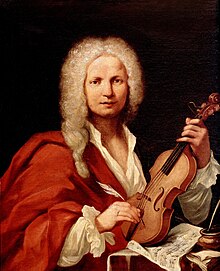
The Free Democratic Party is a liberal political party in Germany.

Germany is a democratic and federal parliamentary republic, where federal legislative power is vested in the Bundestag and the Bundesrat.

Christian Democratic and Flemish is a Flemish Christian-democratic political party in Belgium. The party has historical ties to both trade unionism (ACV) and trade associations (UNIZO) and the Farmer's League. Until 2001, the party was named the Christian People's Party.
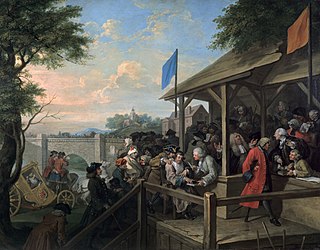
Political colours are colours used to represent a political ideology, movement or party, either officially or unofficially. They represent the intersection of colour symbolism and political symbolism. Politicians making public appearances will often identify themselves by wearing rosettes, flowers, ties or ribbons in the colour of their political party. Parties in different countries with similar ideologies sometimes use similar colours. As an example the colour red symbolises left-wing ideologies in many countries, while the colour blue is often used for conservatism, the colour yellow is most commonly associated with liberalism and right-libertarianism, and Green politics is named after the ideology's political colour. The political associations of a given colour vary from country to country, and there are exceptions to the general trends, for example red has historically been associated with Christianity, but over time gained association with leftist politics, while the United States differs from other countries in that conservatism is associated with red and liberalism with blue. Mass media has driven a standardisation of colour by political party, to simplify messaging, while historically the colour a candidate chose to identify with could have been chosen based on other factors such as family or regional variations.
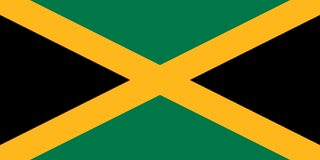
Jamaica coalition is a term in German politics describing a governing coalition among the parties of the Christian Democratic Union/Christian Social Union (CDU/CSU), Free Democratic Party (FDP), and the Green Party.

In German politics, a traffic light coalition is a coalition government of the Social Democratic Party (SPD), the Free Democratic Party (FDP) and Alliance 90/The Greens. It is named after the parties' traditional colours, respectively red, yellow, and green, matching the colour sequence of a traffic light (Ampel). So far, the only instance of a traffic light coalition on a federal level in Germany has been in Olaf Scholz' cabinet between 2021 and its collapse over disagreements in November 2024.
Social–liberal coalition in the politics of Germany refers to a governmental coalition formed by the Social Democratic Party of Germany (SPD) and the Free Democratic Party (FDP). From 1969 to 1982 social–liberal coalitions led by Federal Chancellors Willy Brandt and Helmut Schmidt governed the Federal Republic of Germany.
Purple is a common term in politics used to describe governments or other political entities consisting of parties that have red and blue as their political colours. It is of particular note in three countries. In the politics of the Netherlands and Belgium, purple is the term for a government coalition of social democrats and liberals, excluding christian democrats. It is derived from the combination of the colour of the social democrats (red) and liberals (blue).
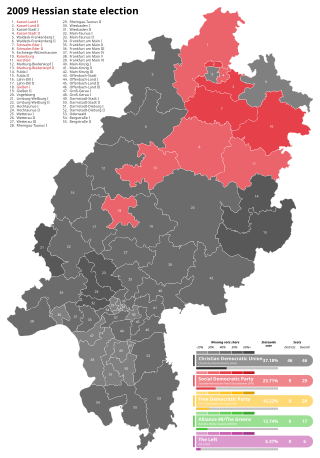
The 2009 Hessian state election was held on 18 January 2009 to elect the members of the Landtag of Hesse. The election was called after the failure of all government formation attempts conducted after the 2008 state election held a year earlier. The Social Democratic Party (SPD) suffered major losses, falling from an effective tie with the Christian Democratic Union (CDU) to a 13.5-point deficit. The Free Democratic Party (FDP) and The Greens were the primary beneficiaries of the SPD's decline. After the election, the CDU formed a coalition government with the FDP, and Roland Koch was elected Minister-President.
Grand coalition is a nickname in German politics describing a governing coalition of the parties Christian Democratic Union (CDU) along with its sister party the Christian Social Union of Bavaria (CSU) and the Social Democratic Party (SPD), since they have historically been the major parties in most state and federal elections since 1949. The meaning of the term may change due to the growth of some formerly minor parties in recent years.
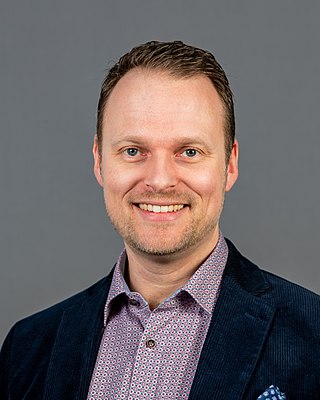
Kai Gehring is a German politician of the Green Party who has been serving as a Member of the German Parliament since 2005.

The 2017 Lower Saxony state election was held on 15 October 2017 to elect the 18th Landtag of Lower Saxony. The incumbent coalition government of the Social Democratic Party (SPD) and The Greens led by Minister-President Stephan Weil was defeated. Though the SPD became the largest party in the Landtag largely fueled by the personal popularity of Weil, their gains were offset by losses for the Greens, depriving the government of its majority. The SPD subsequently formed a grand coalition with the Christian Democratic Union (CDU), and Weil continued as Minister-President.

The Black-red-green coalition, also known as the Kenya coalition is a term in German politics describing a governing coalition among the parties of the Christian Democratic Union (CDU), Social Democratic Party (SPD) and the Green Party. The name comes from the traditional colours of the parties, with the CDU represented by black, the SPD by red, and the Greens by green. As these are also the colours of the Kenyan flag, the name of that country is sometimes applied to the arrangement, in the same manner as the black-yellow-green "Jamaica coalition".

The 2019 European Parliament election in Germany was held on 26 May 2019, electing the 96 members of the national Germany constituency to the European Parliament. Both the CDU/CSU and SPD suffered major losses, while the Greens became the second largest party in a national-level election for the first time in German history.

The 2019 Brandenburg state election was held on 1 September 2019 to elect the members of the 7th Landtag of Brandenburg. It took place on the same day as the 2019 Saxony state election. The outgoing government was a coalition of the Social Democratic Party (SPD) and The Left, led by Minister-President Dietmar Woidke.

The 2022 Lower Saxony state election was held on 9 October 2022 to elect the 19th Landtag of Lower Saxony. The incumbent government was a coalition of the Social Democratic Party of Germany (SPD) and Christian Democratic Union of Germany (CDU) led by Minister-President Stephan Weil.

In Germany's federal electoral system, a single party or parliamentary group rarely wins an absolute majority of seats in the Bundestag, and thus coalition governments, rather than single-party governments, are the usually expected outcome of a German election. As German political parties are often associated with particular colors, coalitions are frequently given nicknames based on the colors included. Prominent political parties in Germany are the CDU/CSU (black), the SPD (red), the Greens (green), the Left, the AfD (blue), and the FDP (yellow).

In German politics, a red-purple coalition also called a magenta coalition is a coalition between the Social Democratic Party of Germany and the Sahra Wagenknecht Alliance. Since December 2024, such a governing coalition has been governing at the state level for the first time with the fourth Woidke cabinet in the state of Brandenburg.

In German politics, a Blackberry coalition also called a black-purple-red coalition or red-purple-black coalition is a governing coalition between the Christian Democratic Union of Germany, Social Democratic Party of Germany and the Sahra Wagenknecht Alliance. Such arrangements were first discussed due to the mathematical possibility of such a new government coalition emerging before the state elections in Saxony and Thuringia in 2024.
A black-green or green-black coalition is a coalition between a conservative and/or Christian Democratic party and a green party.
